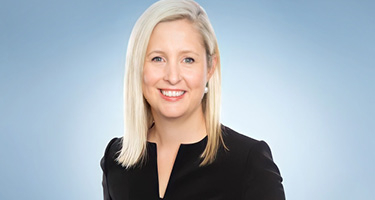The recent spate of news involving significant underpayments of wages by the franchisees and subcontractors to some of Australia’s most well-known corporate names (most notably 7-Eleven), have highlighted the tricky area of head company’s legal and moral liability for employees of other companies in their supply chain.
This area is receiving significant attention by regulators, plaintiffs, and legislators. Companies should take note of these developments in their risk management planning and take steps to ensure that they are not exposed to legal liability or adverse publicity due to the breaches of others.
The Problem
Professor David Weil likens the progress of corporate job shedding to fissuring in geology in his book The Fissured Workplace. [1]
Beginning in the late 1980s, major companies faced intense pressure to improve financial performance. They responded by focusing their businesses on “core competencies”—the activities that represented their value proposition to their market—and by shedding less essential activities.
Large companies typically started by outsourcing peripheral activities like payroll and security. Over time, and as management worked out how to maintain quality standards through better contract management, the practice spread to activities more central to the company’s core purpose: plant operators at a coal mine, housekeeping and front desk at a hotel, and even legal research and due diligence in a law firm.
Like a fissure in a rock that deepens and spreads, once an outsourced activity is shed, the secondary employer often hires smaller businesses to provide workers for specific facilities or shifts. Because each level of the structure requires a financial return and because, as you move downward, wages typically represent a larger share of overall costs while profit margins become slimmer (and the contractors more competitive), the pressure to reduce labor costs to win or maintain work becomes severe. This increases the incentives to cut corners, the result of which may be breaches of awards or other minimum wage obligations.
The Law in Australia
Unlike in the United States, Australia does not recognize the doctrine of “joint employment” in legislation or common law. Section 550 of the Fair Work Act 2009 (Cth) (FW Act) does, however, create liability for a contravention of the FW Act on a person “involved” in that contravention.
“Involvement” is broadly defined. Naturally it includes aiding, abetting, counselling, procuring, inducing, or conspiring with others to effect the contravention. More broadly, though, it includes “being in any way, by act or omission, directly or indirectly, knowingly concerned in or party to the contravention.”
So when will a third party be, by omission, directly or indirectly “knowingly concerned” in another’s breach? These cases tell us the following:[2]
- In order for a person to be knowingly concerned in a statutory contravention, that person must have been an intentional participant with knowledge of the essential elements constituting the contravention.[3]
- It is not, however, necessary that they also know that those elements actually amount to a contravention.[4]
- Actual knowledge of the essential elements constituting the contravention is required. In some cases, actual knowledge can be inferred from the combination of a defendant’s knowledge of suspicious circumstances and the decision by the defendant to not make inquiries to remove those suspicions. In other words, their “willful blindness.”[5]
- Determining whether a person has been “willfully blind” requires consideration of their knowledge of matters giving rise to suspicion and the circumstances and reasons why they did not make the obvious inquiry. As Lord Summer explains it:
A thing may be troublesome to learn, and the knowledge of it, when acquired, may be uninteresting or distasteful. To refuse to know any more about the subject or anything at all is then a wilful but a real ignorance. On the other hand, a man is said not to know because he does not want to know, where the substance of a thing is borne in upon his mind with a conviction that full details or precise proofs may be dangerous, because they may embarrass his denials or compromise his protests. In such a case he flatters himself that where ignorance is safe, ‘tis folly to be wise, but there he is wrong, for he has been put upon notice and his further ignorance, even though actual and complete, is a mere affectation and disguise.[6]
The Trend in Prosecutions
Historically, the factual scenarios that have assigned accessorial liability to third parties have mostly involved the liability of directors (particularly where the employing company is insolvent and so cannot be pursued).
Increasingly, however, the provisions are being successfully used to prosecute corporate entities up the supply chain of labor, franchisors, and internal and external advisers, such as HR managers and accountants “involved in” the breach.
For example:
- In November 2016, the Fair Work Ombudsman (FWO) successfully prosecuted both the employer of underpaid employees in a YogurBerry franchise in the Sydney CBD, and the head Australian company and master franchisor of the YogurBerry chain, YBF Australia Pty Ltd, along with payroll company CL Group. Almost half of the $146,000 civil penalty was imposed, not on the employer, but on the franchisor and payroll company because these parties “had knowledge of, and participated in establishing rates of pay, making payment of wages, determining hours of work, and dealing with employment-related matters” for the employees.[7]
- In October 2016 the Federal Circuit Court imposed penalties against an HR manager who it found was involved in making unlawful “administration” deductions from the wages of cleaners working in Melbourne's Federation Square and Crown Casino, and for failing to keep proper records of those deductions. The HR manager did not personally profit from the breaches and denied any knowledge of the unlawful deductions, but the court found it was more probable than not that he was aware of the contraventions by the employer or, at the very least, was willfully blind and imposed civil penalties on that basis.
- In May 2017, an external accountant was accessorily liable for its clients underpayment of wages for failing to ensure current award rates of pay in their MYOB payroll system. The court held that the accountant had knowledge of the applicable award rates, and it was not acceptable to merely process the (below award) rates given to it by the employer.
In addition to prosecutions, the FWO has been successful in obtaining “enforceable undertakings” in respect to some of Australia’s biggest brands.
For example, in 2012 the FWO commenced proceedings against Coles Supermarkets regarding officers of Coles’s contractor (in liquidation) who were contracted to Coles to provide trolley collection services and officers of a subcontractor to that contractor (also in liquidation) who actually employed the trolley collectors.
The FWO alleged Coles (and its immediate contractor) knew the cost of their contracts for trolley collection services was insufficient to and down the supply chain cover of the minimum wage for those ultimately performing the work. Proceedings against the subcontractors resulted in penalties against a former company director and operations manager totalling $188,100 (75 percent of the maximum) for their role in underpaying 10 trolley collectors more than $220,000.
At the top of the supply chain Coles (against whom the proceedings were discontinued) signed an Enforceable Undertaking (EU) in which it:
- admitted it had “an ethical and moral responsibility” for the conduct of all persons involved in its business;
- agreed to back-pay $220,000 owed to the 10 Adelaide trolley collectors by the two third-tier trolley service providers at the end of the supply chain; and
- established a $500,000 fund to be used to back-pay any other trolley collectors who were subsequently found to have been underpaid.
The Future: Legislative Reform
Earlier this year, the federal government introduced Fair Work Amendment (Protecting Vulnerable Workers) Bill 2017. The bill:
- imposes liability on holding companies and franchisors for contraventions where they know (or ought to have known) of the contraventions and did not take reasonable steps to prevent them;
- adds a new penalty regime for “serious contraventions” (up to $108,000 for individuals and $540,000 for corporate bodies); and
- increases penalties for failures in record keeping; for example, payslips.
The bill has not yet been passed. Further legislative reforms are anticipated following the federal government’s Corporate Avoidance of the Fair Work Act Inquiry, which is currently underway and due to report its findings in August 2017.
Lessons Learned
Franchisors and the head companies of service supply chains should review their labor arrangements and plan for the introduction of the Fair Work Amendment (Protecting Vulnerable Workers) Bill 2017, noting that if “reasonable steps” are taken to prevent the contraventions, liability of a contravention of the FW Act will not be attributed to franchisor or holding company.
The explanatory memorandum to the bill suggests reasonable steps include ensuring that the contractual documents require franchisees/contractors to comply with workplace laws, such as providing franchisees with a copy of the FWO’s Fair Work Handbook, encouraging franchisees or subsidiaries to cooperate with any audits by the FWO, and establishing a contact or phone number for employees to report any potential underpayment to the business and auditing of companies in the network.
Companies should also ensure that its operational leaders, contract managers, HR managers, and others are aware of the accessory provisions in the FW Act and the circumstances that will give rise to an obligation on them to make further inquiries.
------------------
[1] Weil, D. (2014) The Fissured Workplace: How Work Became so Bad for so Many and What Can Be Done to Improve It. Cambridge, MA: Harvard University Press
[2] The provisions are similar to the accessorial liability provisions under the Corporations Law and Consumer Protections Law, and their meaning is reasonably well settled.
[3] Yorke v. Lucas [1985] HCA 65; (1985) 158 CLR 661 at 670.
[4] Yorke v. Lucas at 667; Australian Competition and Consumer Commission v. Giraffe World Australia Pty Ltd (No 2) [1999] FCA 1161; (1999) 95 FCR 302 at [186]; Medical Benefits Fund of Australia Ltd v. Cassidy [2003] FCAFC 289; (2003) 135 FCR 1 at [8][13].
[5] Pereira v. Director of Public Prosecutions [1988] HCA 57; (1988) 82 ALR 217 at 220.
[6] The Zamora (No 2) [1921] 1 AC 801at 812–3, This passage has been quoted with approval in several Australian cases, including Official Trustee in Bankruptcy v Mitchell [1992] FCA 521; (1992) 38 FCR 364 at 371; Richardson & Wrench (Holdings) Pty Ltd v. Ligon No 174 Pty Ltd [1994] FCA 1222; (1994) 123 ALR 681 at 693–4; Australian Securities and Investments Commission v. Adler [2002] NSWSC 171; (2002) 168 FLR 253 at [209].
[7] Fair Work Ombudsman v. YogurBerry World Square Pty Ltd [2016] FCA 1290
------------------
Rohen Cullen practices exclusively in workplace relations and employment law. Rohen is consistently ranked as one of the leading lawyers in Australia by Best Lawyers®. In 2013 and 2017, Rohen was the Best Lawyers “Lawyer of the Year” in the category “Labor and Employment” in the Queensland market. He can be found at https://www.linkedin.com/in/rohen-cullen-3ba3612b/.
Caroline O’Connor is a senior associate with Franklin Athanasellis Cullen and practices in all areas of employment and industrial relations law. Both in private practice and as a solicitor employed by the FWO, Caroline has acted for the FWO in numerous civil penalty proceedings where the accessorial liability provisions were successfully utilized. She can be found at https://www.linkedin.com/in/caroline-o-connor-ab8b5a13a/.
Ensure your business is prepared for emerging legislation and liability risks. Use the Best Lawyers Find a Lawyer tool to consult with qualified legal experts.
































